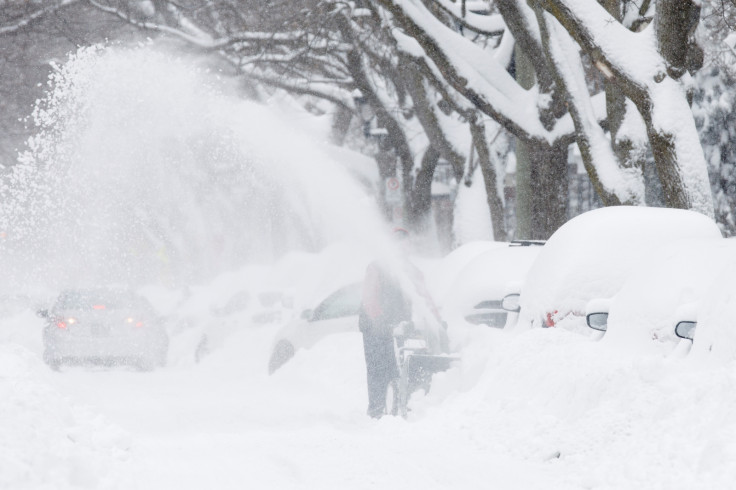At least 6 dead after winter storm hits eastern Canada
Up to 28in of snow fell in parts of Ontario, Quebec and the coastal Maritimes region.

At least six people have died after a severe storm with high winds blowing from the US side paralysed Canada on Wednesday (15 March).
Two men were found dead inside a snow-covered car outside Quebec City. One of them had tried to contact emergency services for help late Tuesday, but officials on snowmobiles were unable to reach them on time.
Two other people died after a collision on icy roads while they were riding their bikes. A 58-year-old man died when struck by a snowplough.
Blizzard and low visibility led to around 30 vehicles colliding on the main highway between Toronto and Montreal, closing it for several hours. The crash claimed the life of a truck driver, who was carrying hydrofluoric acid.
Environment Canada's weather office said up to 70cm (28in) of snow fell in the regions of Ontario, Quebec and the coastal Maritimes region with winds of 100km to 140km (about 60 to 90 miles) per hour.
The inclement weather left around 70,000 households without power. However, the situation is expected to be back to normal on Thursday, CBCnews reported.
Many flights at Trudeau airport were cancelled or delayed and most school boards in the region were closed on Wednesday. However, schools were expected to reopen on Thursday, including those in the English Montreal School Board and Lester B Pearson School Board.
Two American snowshoers are believed to have died in an avalanche near Lake Louise in Banff National Park on Wednesday. They failed to check out of their hotel in the Alberta resort and their vehicle was found at a trail head on the Icefields Parkway.
"We believe they had gone snowshoeing and subsequently got caught in an avalanche. We do not know for certain, but we presume that they are deceased," a Royal Canadian Mounted Police spokesman, Curtis Peters, said.
© Copyright IBTimes 2025. All rights reserved.





















